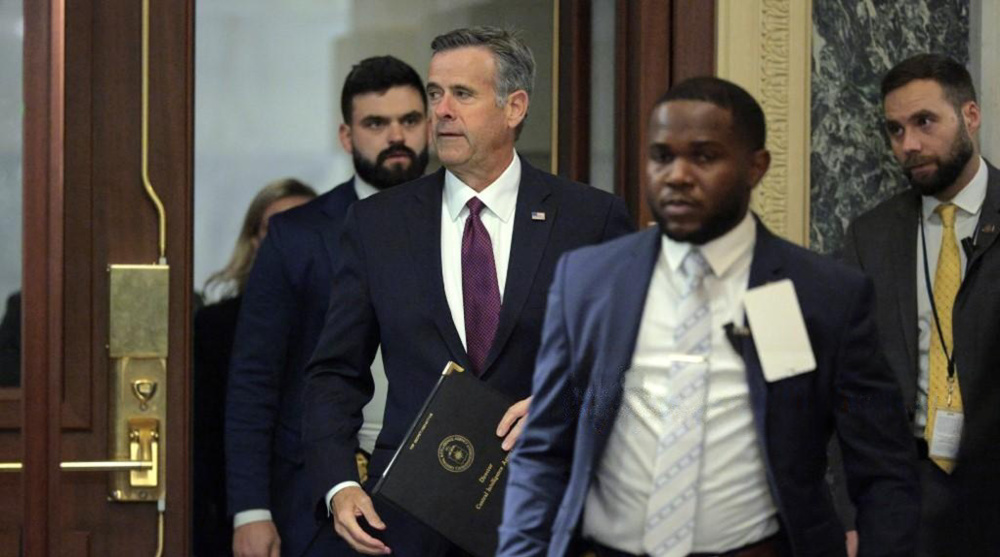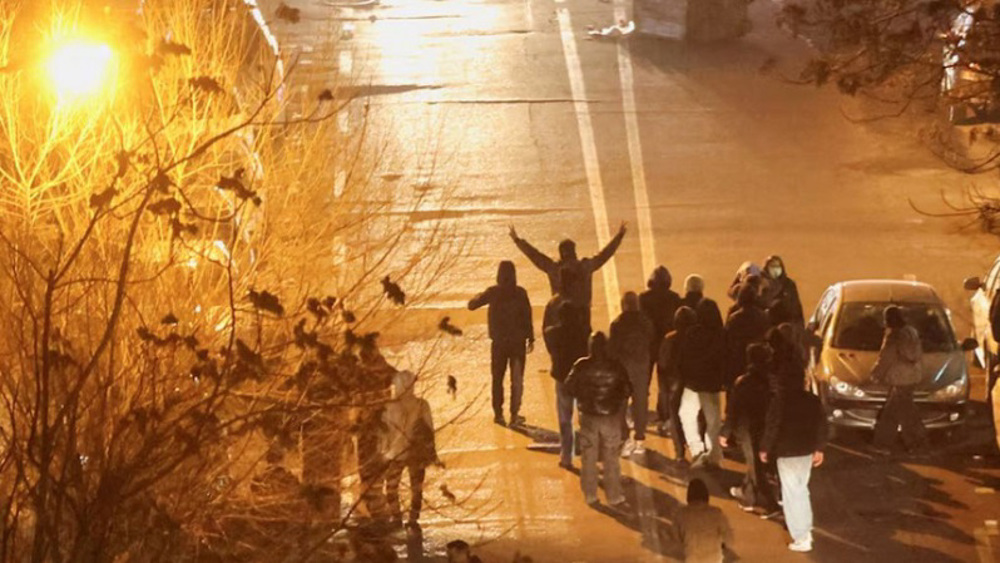US poised to remove sanctions against Iran next month
The US appears set to partially lift illegal sanctions on Iran, imposed based on unfounded accusations over Tehran's nuclear energy program. Easing of sanctions could come as soon as next month.
US officials have for years accused Iran of using its nuclear energy program for non-civilian purposes, claims that have never been verified despite an exhaustive and unprecedented inspection regime.
US Secretary of State John Kerry told the US Senate Foreign Relations Committee in a letter on Wednesday that Iran is fulfilling its obligations under the P5+1 agreement in a “transparent” and “verifiable” way, and that “suspension of sanctions is appropriate”.
Iran and the P5+1 group of countries – the US, Britain, France, Russia, China, and Germany – announced the conclusion of nuclear negotiations in Vienna, Austria, on July 14.
Under the agreement, Iran has been recognized by the United Nations as a nuclear power, and it will continue its uranium enrichment program, but some restrictions will be placed on Iran’s nuclear program in exchange for the removal of sanctions.
Senator Ben Cardin, the top Democrat on the Senate Foreign Relations Committee, said on Thursday that the sanctions removal process could start as early as January, The Associated Press reported.
Cardin said throughout the review of the nuclear agreement by Congress it had been speculated that Iran could comply with the terms required for the sanctions relief in spring.
“Now we understand it is likely that Iran will be in compliance and entitled to sanctions relief as early as January,” Cardin said at a hearing where Obama administration officials were questioned about the nuclear accord.
“Obviously, we want them to comply - don't get me wrong,” Cardin said. “But why did we misjudge so badly the date that is likely for compliance?”
Meanwhile, the US State Department agreed that some Obama administration officials had guessed that it would take until the spring but it seems Iran has paced up the process.
“We're not there yet,” said Stephen Mull, the State Department's lead coordinator for implementing an international nuclear deal with Iran. “I don't think anyone in the US can predict when that will be. The responsibility for that lies with Iran as verified by the International Atomic Energy Agency (IAEA).”
The illegal sanctions on Iran have been imposed based on the unfounded accusation that Tehran is pursuing non-civilian objectives in its nuclear energy program.
Iran has always rejected the allegation, arguing that as a committed signatory to the nuclear Non-Proliferation Treaty (NPT) and a member of the IAEA, it has the right to use nuclear technology for peaceful purposes.
On Tuesday, the governing board of the IAEA overwhelmingly voted in favor of a draft resolution which brought an end to a 12-year investigation into the outstanding issues regarding Iran’s nuclear program.
The 35-nation body passed the draft resolution by consensus. The approved resolution said the investigation was "implemented in accordance with the agreed schedule" and that this "closes the board's consideration of the matter."
In response, Ali Akbar Salehi, head of the Atomic Energy Organization of Iran, said the IAEA's decision to drop the so-called possible military dimensions (PMD) in relation with the country's nuclear case proved that the entire case was "manufactured" in order to increase pressure on Iran.
VIDEO | Tehran tax administration building destroyed in organized arson, explosion
National unity will block threats to Iran’s territorial integrity: Intelligence minister
VIDEO | Israel-US scheme for Gaza
VIDEO | Iraqi parliament delays vote to elect new president
VIDEO | Gaza City still thirsty due to Israeli attacks, restrictions
VIDEO | Yemen discloses 'Red Sea Missile' amid shifting regional deterrence
Iranian drone swarms pose ‘credible threat’ to US naval assets: Expert
Israeli attacks kill four civilians in Gaza amid ceasefire violations










 This makes it easy to access the Press TV website
This makes it easy to access the Press TV website